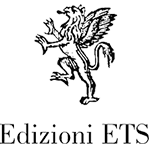New models of academic writing: the Project Work of Pegaso University
DOI:
https://doi.org/10.4454/graphos.133Keywords:
academic writing, project work, higher education learningAbstract
In recent years, academic writing has undergone significant transformations due to technological advancements and the evolving demands of education and the labor market. The article examines the introduction of the Project Work (PW) as an innovative final examination format in undergraduate programs at Pegaso Telematic University. It describes the normative and pedagogical framework underpinning this innovation, emphasizing the alignment of the PW approach with academic autonomy and contemporary competency-based educational theories. The study further analyzes the evolution of academic writing in the contemporary digital and professional environment, in light of epistemological and technological transformations that have altered textual models and pedagogical approaches. This model is characterized by a hybrid textual format with high formative impact—integrating scholarly rigor with practical application—as well as by a learning process guided by interactive teaching methodologies.
References
Arapoff, N. (1967). Writing: A thinking process. Tesol Quarterly, 1(2), 33-39.
Austin, J. L. (1962). How to do things with words. Harvard University Press.
Bakhtin, M. M. (1975). Questions of literature and aesthetics: Studies of different years. Khudozhestvennaya Literatura.
Baldini, M. (2003). Storia della comunicazione. Roma: Newton Compton.
Calvino, I. (2012). Lezioni americane. Sei proposte per il prossimo millennio. Milano: Edizioni Mondadori.
De Beaugrande, R., & Dressler, W. (1981). Introduction to text linguistics. Longman.
De Martino, D. (2022). Storia dell’e-learning in Italia. Bari: Progedit.
European Commission. (2017). European Qualifications Framework (EQF) for lifelong learning. https://europa.eu/europass/en/european-qualifications-framework-eqf
European Commission. (2018). Council Recommendation on Key Competences for Lifelong Learning. Official Journal of the European Union, C 189, 1–13. https://eur-lex.europa.eu/legal-content/EN/TXT/?uri=CELEX%3A32018H0604%2801%29
European Commission. (2018). Key competences for lifelong learning. Retrieved from https://education.ec.europa.eu
European Union. (2019). Recommendations on key competences for lifelong learning. Retrieved from https://eur-lex.europa.eu
Giunta, C. (2010). Le 'Lezioni americane’ 25 anni dopo: una pietra sopra?. Belfagor 65.6: 649-666.
Granata, P. (2013). Italo Calvino: ‘sei lezioni’ sul mondo digitale. Doppiozero.
IEA (2024). ICILS. International Computer and Information Literacy Study 2024. https://www.iea.nl/studies/iea/icils
ILA. (2016). International Literacy Association. https://www.literacyworldwide.org
Jakobson, R. (1978). Lo sviluppo della semiotica. Bompiani
Kolb, D. A. (1984). Experiential learning: Experience as the source of learning and development. Englewood Cliffs, NJ: Prentice Hall.
Maraschiello, A. (2021). Vademecum per la progettazione dei Project Work. Regione Autonoma Valle d'Aosta.
Marchese, A. (1983). L'officina del racconto. Semiotica della narratività. Mondadori.
Ministero dell’Istruzione, dell’Università e della Ricerca. (2004, 22 ottobre). Decreto ministeriale 22 ottobre 2004, n. 270: Modifiche al regolamento recante norme concernenti l’autonomia didattica degli atenei. Gazzetta Ufficiale della Repubblica Italiana.
Musarra-Schøder, U. (1996). Il labirinto e la rete. Percorsi moderni e postmoderni nell'opera di Italo Calvino. Roma: Bulzoni.
OCSE. (n.d.). Programme for International Student Assessment (PISA). https://www.oecd.org/pisa/
OCSE. (n.d.). Programme for the International Assessment of Adult Competencies (PIAAC). https://www.oecd.org/skills/piaac/
OECD. (2019). Skills matter: Additional results from the survey of adult skills. Paris: OECD Publishing.
Savoia, T. (2019). “L’interferenza nella capacità di scrittura in lingua straniera”, in R. Travaglini, (a cura di). Scrivere bene. Un percorso educativo tra tradizione e innovazione. ETS Edizioni. pp. 133-142.
Università Telematica Pegaso. (2024). Linee guida per la redazione del Project Work finale. Disponibili sulla piattaforma d’Ateneo.
Università Telematica Pegaso. (2024, 5 febbraio). Regolamento della prova finale per i corsi di studio triennali (Decreto Rettorale n. 125/2024).
Downloads
Published
How to Cite
Issue
Section
License
Copyright (c) 2025 Elisabetta Lucia De Marco

This work is licensed under a Creative Commons Attribution 4.0 International License.




 Edizioni ETS s.r.l. LUNGARNO MEDICEO 16 - 56127 - PISA
Edizioni ETS s.r.l. LUNGARNO MEDICEO 16 - 56127 - PISA